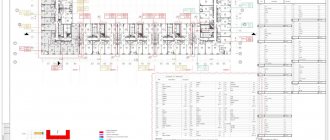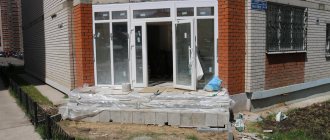Buying an apartment through joining a housing cooperative is one of the ways to acquire your own home. Such an association implies the consolidation of citizens , whose common activities will be aimed at obtaining housing . Such an association is created by approving a charter at a meeting, which sets out all the key aspects of the activities of the future cooperative.
In practice, there are several types of such associations, the purpose of which is aimed at obtaining housing:
- housing (purchase of housing);
- housing construction (home construction);
- housing-savings (construction of apartments is carried out not in one building, but in several);
- consumer mortgage (the transferred housing is encumbered with collateral - a mortgage);
- consumer credit (participants receive loans to purchase housing).
who have reached the age of sixteen can be members of a cooperative . They have various rights and obligations established both by law and by the association's charter. Ownership of the apartment is issued only after full payment of all required contributions.
Participation in such cooperatives involves some risks , which must be studied before deciding to join the association.
What is a housing cooperative?
A housing cooperative (LC) is a voluntary union of citizens (in some situations, legal entities) based on their membership, created for citizens to purchase an apartment, as well as manage an apartment building. The legislator established the legal status of housing cooperatives in Ch. 11 Housing Code of the Russian Federation. Members of the cooperative participate in the reconstruction, acquisition, and maintenance of an apartment building, which is the purpose of creating this association.
When creating a cooperative, at least 5 entities have the right to participate, but no more than the number of apartments that are in the acquired building.
The creation of a residential complex is decided at a meeting of its participants. This body approves the charter, after which state registration is carried out.
A distinctive feature of residential complexes from other types of similar associations is the opportunity established by the legislator to buy a house (with subsequent management and reconstruction). Such a union is prohibited from constructing new facilities. For this purpose, a housing-construction cooperative form is being formed.
Risks of participating in a cooperative
The main risks of participating in a cooperative come directly from the very essence of such an association. In the case of a housing cooperative, the acquisition and reconstruction of a house is carried out independently, and in the case of a housing construction cooperative, such an association acts as a developer, then all responsibility falls on the association itself and its members.
Example
An incorrect calculation was made and the share contributions for reconstruction or construction are not enough. In this case, it becomes necessary to make additional contributions by all members of the cooperative.
In addition, risks may arise associated with late payment of cooperative contributions, which may entail:
- increasing the construction or reconstruction time of a house;
- problems with the contractor, the change of which often leads to additional costs.
Also, no one is immune from the mass exit of cooperative members from it. This can happen for completely different reasons. The cooperative will have to return the fees paid, and therefore there may not be enough . Replacing departed members with new people may take a long time, which will also, at a minimum, lead to an increase in waiting times for housing.
The above risks should be taken into account when choosing a method for acquiring home ownership. For some, joining a cooperative and being prepared to take such risks is the only opportunity to purchase an apartment.
Who can be a member of the LCD? Advantages of purchasing housing in a cooperative
Art. 111 of the RF LC establishes a list of subjects who have the right to be members of the LC. First of all, these are persons over 16 years of age. In addition, this association may also include legal entities:
- in cases established by the legislator;
- if such a legal entity a person represents the owner of premises in an apartment building, while the management of common property is carried out by a housing cooperative.
The subjects listed in Art. 49 Housing Code of the Russian Federation:
- related to low-income citizens (recognized as such in the prescribed manner);
- other persons who are recognized as needing housing in accordance with the established procedure.
Advantages of buying housing in a housing cooperative:
- Obtaining a long-term installment plan, compared to the DDU, where funds are paid towards the completion of construction; in this case, you can make a partial payment for a couple of years after the house is put into operation.
- The possibility for members of the residential complex to obtain rights to manage the building immediately after its construction is completed, since they have the right to exercise control over the invested money without the need to create a new cooperative.
- The right to carry out construction work in a situation of financial insolvency of the developer - participants in the residential complex can attract new construction companies.
- Share contributions are not taxed, which significantly reduces the price of the real estate.
Concept of a cooperative house
To best understand what a cooperative house is, you need to understand the definition of the word “cooperative.” Cooperative houses appeared back in Soviet times and proved themselves so successful that they still remain in our present.
A cooperative is a form of association of citizens . They can unite for various reasons and for various purposes. Hence the huge number of types of cooperatives existing in the country: garage, housing, industrial, consumer and others.
A housing construction cooperative is a form of association of people for the construction of a residential building and its further management. People contribute their money in the form of shares before the house is even ready. In essence, this agreement with a housing cooperative is similar to an equity participation agreement. However, it has more risks, since it is subject to registration only after the house is put into operation.
The simplified procedure for building a cooperative house is as follows:
- citizens unite, create a cooperative and form a common share;
- the house is being built by third parties;
- members of the cooperative move into finished housing and gradually pay off the remaining shares.
This procedure corresponds only to the activities of housing cooperatives. The housing cooperative does not build houses itself; it buys housing on the real estate market. Until the share is fully paid, the apartment remains the property of the cooperative.
Whether it should be privatized after full payment of the share is a personal matter for everyone. Privatization and full registration of ownership will allow you to freely sell your home in the future without the participation of other members of the cooperative.
Difference from an ordinary house
If you answer the question of how a cooperative house differs from an ordinary one, you need to highlight the key features of such housing.
The management of the cooperative house is carried out by the housing construction cooperative. In addition to the housing cooperative, the management of the house can be carried out by the HOA or the management company.
The difference here is manifested in the fact that the housing cooperative is formed even before the appearance of the house itself. An HOA is organized only when the house already exists. The management company is generally a separate division, not connected in any way with the house, except through a property management agreement.
Ordinary houses are built by developers or the state, sometimes at the expense of shareholders, sometimes at the expense of their own or borrowed funds. Cooperative houses are built by cooperative members, but not independently, but with the help of third parties.
Otherwise, the procedure for purchasing such an apartment or selling it, managing the house and resolving the most important issues is no different from the same events in an ordinary house. For example, payment for utilities is carried out according to the same scheme.
Do I need to pay for major repairs if the house is a cooperative one? It is necessary to pay contributions regardless of the type of house and the way it is managed. Minimum tariffs are set at the regional level. The accumulated funds are formed in special bank accounts opened by the housing cooperative or the regional operator.
You can refuse to pay contributions for major repairs only if the house is recognized as unsafe.
The rights of residents of a cooperative building are prescribed in the charter of the established cooperative and in agreements concluded between the participants and the association itself.
How to register in such housing? Just like in a regular house.
Advantages and disadvantages
A cooperative house and living in it has its pros and cons. The benefits are mainly related to the economic benefits of purchasing such housing.
The advantages of buying an apartment in a cooperative building are as follows:
- Citizens over 16 years of age or legal entities can become a member of the housing cooperative.
- To create a housing cooperative, a very small number of participants is enough.
- The overpayment for housing is minimal, since it only includes the costs of maintaining the housing cooperative during the construction of the house.
- The amount of the contribution is calculated on the basis of the construction estimate.
The minimum number of participants to create a housing construction cooperative is limited to 5 persons.
Here you do not need to collect a huge number of certificates and documents, as is the case when applying for a mortgage from banks . There is no such huge overpayment for an apartment as in the case of a house being built by a developer who wants to extract maximum profit from this project for himself.
The disadvantages of building a cooperative house include:
- The agreement is not registered, hence the high risks of double sales of apartments.
- A housing and savings cooperative may require additional contributions from members, the amount of which may significantly exceed the original shares of the participants.
- All additional and targeted contributions when a citizen leaves the cooperative are not returned to the housing cooperative.
Owners of future apartments will have to independently organize the construction process, purchase materials and monitor the work of builders. In a housing cooperative, it will be possible to move into a house only after repaying half of the full amount, and registering ownership only after the full repayment of the share. In total, housing cooperative participants have lower costs than housing cooperative participants.
It is better to choose a DDU for purchasing real estate that has not yet been built. Firstly, DDU is subject to mandatory state registration with Rosreestr to protect against the risk of double sales. Secondly, in 2021, escrow accounts are in effect in the country, protecting shareholders’ funds from unscrupulous developers until the completion of the house’s construction.
The procedure for purchasing an apartment through a housing cooperative
The process of buying a home through a residential complex has certain differences. To purchase an apartment, a citizen needs:
- Joining a cooperative.
- Obtaining permission to choose housing.
- Purchase of the selected residential space with a contribution of part of the funds (at least half of the price).
- Registration.
- Payment of the remaining cost.
You must have with you:
- Passport.
- Membership book.
- A certificate confirming payment of the required fee.
- Extract from the house register.
- Cadastral and technical passport.
A careful study of the constituent documentation and certification of the legality of the creation of the residential complex is required.
How to join the residential complex
According to Art. 121 of the Housing Code of the Republic of Kazakhstan, in order to become a member of a housing cooperative, you need to submit an application to the management of this organization. Such a petition is considered within 30 days and is also approved at the general meeting. To recognize an individual (or legal entity) as a member of the association, it is necessary to pay an entrance fee. After which the authorized bodies enter the new entity of the cooperative into the register.
The process of paying further fees, providing housing and other issues are established by the charter of the housing complex and apply to the new member of the association. All decisions of the meeting are documented in the form of minutes.
Ownership of cooperative housing
The ultimate goal of participation in a residential complex is the acquisition of ownership of housing. Based on Art. 129 of the Housing Code of the Russian Federation, a member of an association acquires ownership rights only after paying all fees in full. This rule of law is confirmed in Art. 218 of the Civil Code of the Russian Federation.
The process of registering the possibility of owning a home is carried out in the general manner. In this case, it will be necessary to provide to the authorized body:
- a receipt confirming payment of all fees;
- charter of the residential complex;
- minutes of the meeting’s decisions that a new member has been accepted into the cooperative.
Withdrawal from members of the cooperative
According to Art. 130 of the RF Housing Code, along with other grounds for termination of membership, there is the possibility of leaving the cooperative . In this case, the person wishing to leave must provide an application for voluntary exit . Consideration of such an application takes place in the manner established in the charter of the association.
It is worth noting that when a member leaves the organization, he is paid those contributions that he had already managed to pay by that time.
The payment procedure is also established by the charter , but the period should not exceed two months from the date of the meeting’s decision on the member’s withdrawal from the cooperative (based on the considered application).
Answers to frequently asked questions
Question No. 1. Are there tax benefits when purchasing an apartment in a housing cooperative?
According to paragraphs. 1 clause 2, pp. 4 p. 3 art. 39, art. 146 of the Tax Code of the Russian Federation, the share contribution is not subject to VAT, which significantly reduces the price of apartments in the residential complex. In addition, members of this association have the right to count on a tax deduction for the purchase of housing. One requirement for this is payment for the apartment in full.
Question No. 2. How is cooperative housing distributed?
The distribution process is regulated at the general meeting of cooperative members. Moreover, if disagreements arise on this issue, they are resolved within the association; the country does not regulate this aspect.
Question No. 3. Is the approval of the cooperative members required for the assignment of a share?
The consent of the participants of the housing cooperative is a mandatory condition for the possibility of assigning a share. Thus, before signing the assignment agreement, it is necessary to obtain the approval of the majority of the members of the LC.
Seven stages of purchasing a home with the help of a housing cooperative
Author Irina Gusakova
21.08.2020 11:30
Real estate » Housing cooperatives » Recommendations
Algorithm for a housing cooperative to purchase housing for a shareholder (based on the experience of the Best Way cooperative).
1. Joining a cooperative.
A citizen of Russia or a foreign citizen who has reached the age of 16 submits an application for membership to the board of the cooperative, presenting a passport and attaching a copy of it. There is no upper age limit for joining a cooperative.
2. Making an initial share contribution.
Simultaneously with joining the cooperative, funds from an initial share contribution are made to purchase the desired apartment - either in full (at least 35% of the cost of the apartment) or partially. Membership in a housing cooperative has a specific goal - purchasing an apartment. When joining a cooperative, the shareholder submits an application reflecting the characteristics of the apartment that interests him:
- city,
- area in the city
- number of rooms,
- footage,
- price.
Later, he may reconsider his preferences and offer the cooperative to buy another apartment - larger or smaller, more expensive or cheaper, an apartment in a different locality than originally intended: this is not prohibited.
The shareholder, in parallel with the contribution of share funds, makes membership fees, which go to finance the current activities of the cooperative. All share contributions are accumulated in a special cooperative account.
Shareholders of the cooperative have the right to participate in general meetings of cooperative members with the right to vote on issues put to vote.
If, during his stay in the cooperative, the shareholder’s plans to purchase an apartment with the help of the cooperative have changed or his financial situation has changed, he submits an application to leave the cooperative and within two months, on the basis of the Housing Code, the share funds contributed by him are returned.
You can also leave the cooperative after purchasing an apartment: in this case, the shareholder is also returned the share funds in full, and the apartment is transferred to the cooperative.
3. Queuing up to buy an apartment.
When the initial share contribution is made in full for the purchase of the apartment declared by the shareholder (at least 35% of its cost), the shareholder is placed in a queue for the cooperative to purchase the apartment for him.
Placing in the queue is carried out based on the time the shareholder makes the full initial share contribution - at least 35% of the cost of the apartment proposed for purchase.
The movement of the queue is usually displayed in the shareholder’s personal account on the cooperative’s website. If it is the shareholder’s turn and the cooperative’s mutual fund already has an amount sufficient to pay no more than 65% of the cost of the apartment, the shareholder and the cooperative proceed to purchase the apartment.
4. Choosing an apartment to buy.
The shareholder looks at options for apartments for purchase, selects the apartment that best suits his needs and invites the board of the cooperative to agree on the purchase of the selected apartment based on legal expertise and independent assessment data: these are carried out by the shareholder at his own expense.
5. Buying an apartment in the interests of the shareholder.
When the apartment is checked and approved by the board of the cooperative, the cooperative acquires it in the interests of the shareholder, the shareholder is registered in the apartment. He pays utility bills for the apartment.
In many subjects of the Federation, housing cooperatives are exempt from taxes levied during the period the apartment is owned - property tax.
One way or another, after purchasing a property, the responsibility to pay taxes on it lies with the shareholder, since the apartment is purchased in his interests.
6. Refund to the cooperative.
After purchasing an apartment to a shareholder, he begins to make payments in accordance with an individual schedule to pay for the funds provided to him by the cooperative for the purchase for a period of up to 10 years.
Payments to the cooperative are monthly - including both share funds and membership fees. In case of temporary financial difficulties, the board of the cooperative may grant a deferment.
7. Transfer of the apartment into the ownership of the shareholder.
The cooperative becomes the owner of the apartment for the period of return of the cooperative's funds, but the apartment as a target acquisition in the interests of the shareholder is not put on the balance sheet of the cooperative and the shareholder, having repaid the debt to the cooperative, according to the certificate of payment of the share to the cooperative, independently, without any additional procedures, registers his right ownership of an apartment in Rosreestr.
Themes
Typical mistakes and possible risks
What are the risks when purchasing an apartment through a residential complex? In the absence of a separate provision of law regulating the activities of housing cooperatives, members of the association risk in the following situations:
- The construction of the building may not be completed due to certain circumstances and the state will no longer protect the rights of shareholders in this situation.
- The price for real estate may increase during the construction of an apartment building.
- Developers have no guarantees to the participants of the residential complex.
- The financial activities of a construction company are regulated by a specially created commission of members of the housing complex; the state does not exercise control in such a situation.
- The distribution of apartments is decided at a general meeting of participants and in a situation of disapproval of the members of the association, shareholders will have no grounds for appeal.
Powers of the chairman and residents
Each cooperative has its own elected chairman and deputy chairman. They, as a rule, hold general meetings, put important issues on the agenda, and speak on behalf of housing cooperatives in other organizations.
It is necessary to clarify who these persons report to. In essence, they are subordinate to all members of the cooperative who cast their votes for their election. After all, appointment, as well as dismissal, is decided by everyone together at a general meeting.
The rights of the chairman of the housing cooperative can be characterized as follows:
- has the right to enter the premises of another owner in the event of an accident only with his consent;
- carries out personnel selection and management;
- in case of equality of votes among board members, has the right to a casting vote;
- has the right to vacate the position of chairman early;
- manages the funds of the cooperative;
- files lawsuits on behalf of the cooperative and represents its interests in various authorities;
- prepares and issues necessary documents to residents of the house.
The responsibilities of the chairman of a cooperative house are:
- conduct the activities of the cooperative in good faith and wisely;
- resolve issues related to the provision of utility services to homeowners;
- provide residents with recalculation of payments for poorly provided services;
- store documents of the cooperative and residents and provide them upon request;
- conduct banking operations, maintain accounting;
- exercise control over the improvement of buildings.
Every quarter, the chairman of the cooperative house is required to draw up a work plan and report on its implementation to the board at the end of each quarter.
Who maintains the cooperative house? The maintenance of the house is carried out by the housing cooperative, and not by the HOA or management company. It is for service that the chairman must constantly report to the residents.
Example 2
I recently became a member of a housing construction cooperative and regularly pay the appropriate fees. But due to the emerging right to purchase housing immediately in another building, without waiting for the completion of the building, I want to leave this association. Can I leave such an association? Will my fees be refunded?
In Art. 130 of the RF Housing Code specifies the basis for termination of participation in a cooperative as the withdrawal of such a participant. That is, you have the right to completely leave the cooperative. Based on Art. 132 of the Housing Code of the Russian Federation, you can receive the paid amount no later than 2 months from the time of leaving the association.
Therefore, purchasing a cooperative apartment is associated with certain risks. The main advantage of such purchases is obtaining installment plans on favorable terms and the low price of real estate. Housing cooperative is a way of acquiring a home for those who are not afraid of difficulties and are willing to take risks.
The market is controlled practically by two laws: Federal Law 214 and Federal Law 215, the possibilities for judicial authority with irresponsible companies are very small.
Only verified organizations do not scam residential complexes. If you don’t want to take risks, choose equity participation.
Advantages and disadvantages of housing cooperatives
Each type of housing cooperative has its own special advantages, but if we summarize, we get the following positive aspects:
- Cost of the apartment . Since the budget of a non-profit organization consists only of funds from members of the association (there is no credit money at all), the cost of housing will be approximately 2, and sometimes 3 times less. This is the main advantage of any type of LCD;
- There is no need for certificates . In order to take out a mortgage loan, you need to provide documents on solvency, income, health certificate, etc. To purchase square meters through a cooperative, it is enough to provide a passport and a scan of your work book. It is simple to explain this phenomenon - unscrupulous members of the union will eventually weed themselves out, without receiving anything.
Despite these positive aspects, housing cooperatives are not without significant disadvantages:
- Membership fee . To join a cooperative, you must deposit an amount equal to 3 to 7% of the cost of the apartment. This contribution can be considered gratuitous, since it does not go into the savings amount and will not be returned to the payer if he decides to leave the association;
- Property . When a client enters into an agreement with a bank to take out a mortgage loan, the apartment immediately becomes the property of the payer, although at that moment it is pledged. In case of late payments, the bank gives time to correct the unpleasant situation, since its interests do not include legal proceedings. In the case of residential complexes, until the last payment is made, the housing remains the property of the association, therefore, if payment is late, the organization has the right to take away the apartment without proceedings.











